Philips Hue vs Lifx smart light bulbs - which is the best system?
The smart light bulb war is on and it's Hue vs Lifx that you may find yourself choosing from as the top offerings

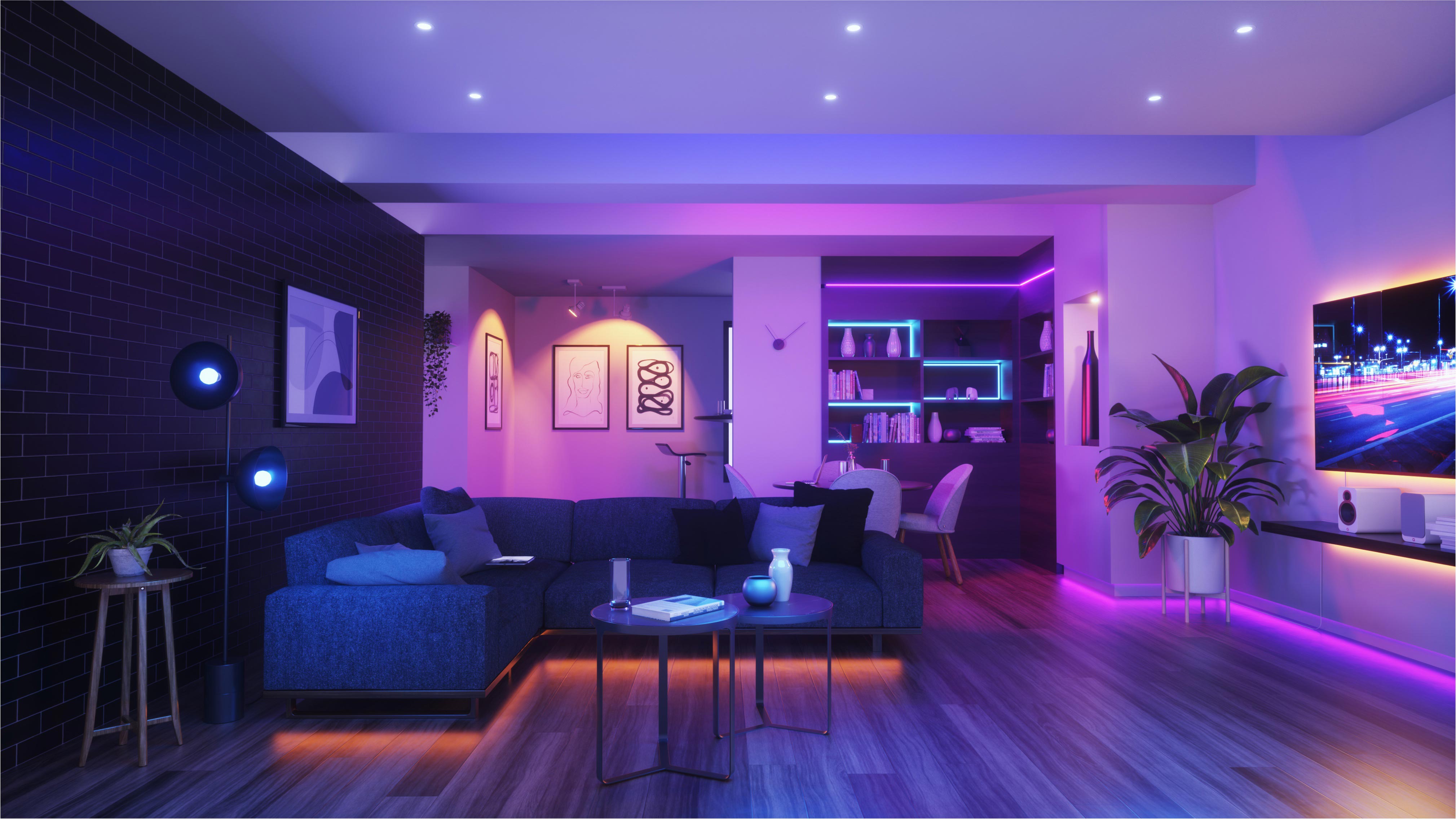
The Livingetc newsletters are your inside source for what’s shaping interiors now - and what’s next. Discover trend forecasts, smart style ideas, and curated shopping inspiration that brings design to life. Subscribe today and stay ahead of the curve.
You are now subscribed
Your newsletter sign-up was successful
Philips Hue vs Lifx - the battle for your light fixtures space is on. And leading the charge with the top options are these two key players. But which is best for your home?
Philips started the whole smart bulb trend with its Hue range and since then there have been lots of other brands that have tried to replace that. What's actually happened is that we've found ourselves with lots more choice, different features across brands and more compatibility as they try to compete to be seen as one of the best smart light bulbs.
But Lifx has been the name to stand out against all others and, as such, is largely seen as the alternative to Hue. With variations in how they connect to the internet, pricing and features, it's not an easy choice. If you're deciding between the two best brands for your home then these are the points you'll need to consider.
Hue vs Lifx - how much range do you smart lights need?
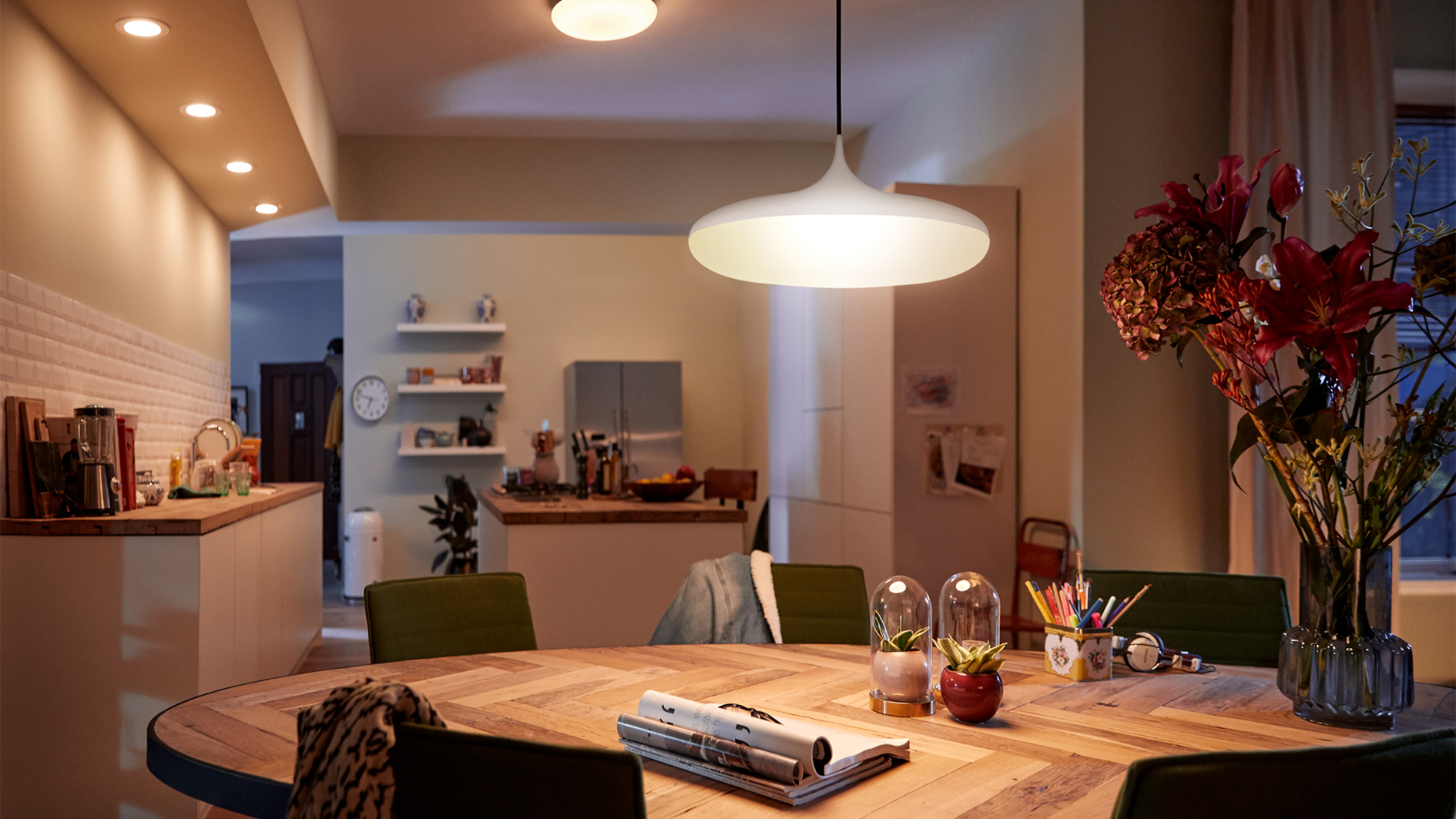
When picking between Hue or Lifx there is one major difference that really separates them. This is how you connect to and control the lights. What it comes down to is how far your router sits from the places you want the bulbs to live.
Both the Hue range of automated lighting and the Lifx offerings will connect to your WiFi so you can control them from your smartphone, or voice assistant, anywhere. While Lifx has WiFi in each bulb to connect to your router directly, the Hue range requires a bridge unit. This bridge connects to your internet and then acts as a medium for the lights in the home.
What's the difference? A Lifx bulb will need to be close enough to your router to make a WiFi connection. A Hue bulb will daisy chain, connecting to the nearest bulb which connects back to the bridge, effectively making it's range unlimited.
So if you want to use bulbs far from your router, where WiFi signal is poor, then the Hue bulbs are the better option.
The Livingetc newsletters are your inside source for what’s shaping interiors now - and what’s next. Discover trend forecasts, smart style ideas, and curated shopping inspiration that brings design to life. Subscribe today and stay ahead of the curve.
How much color control do you want?
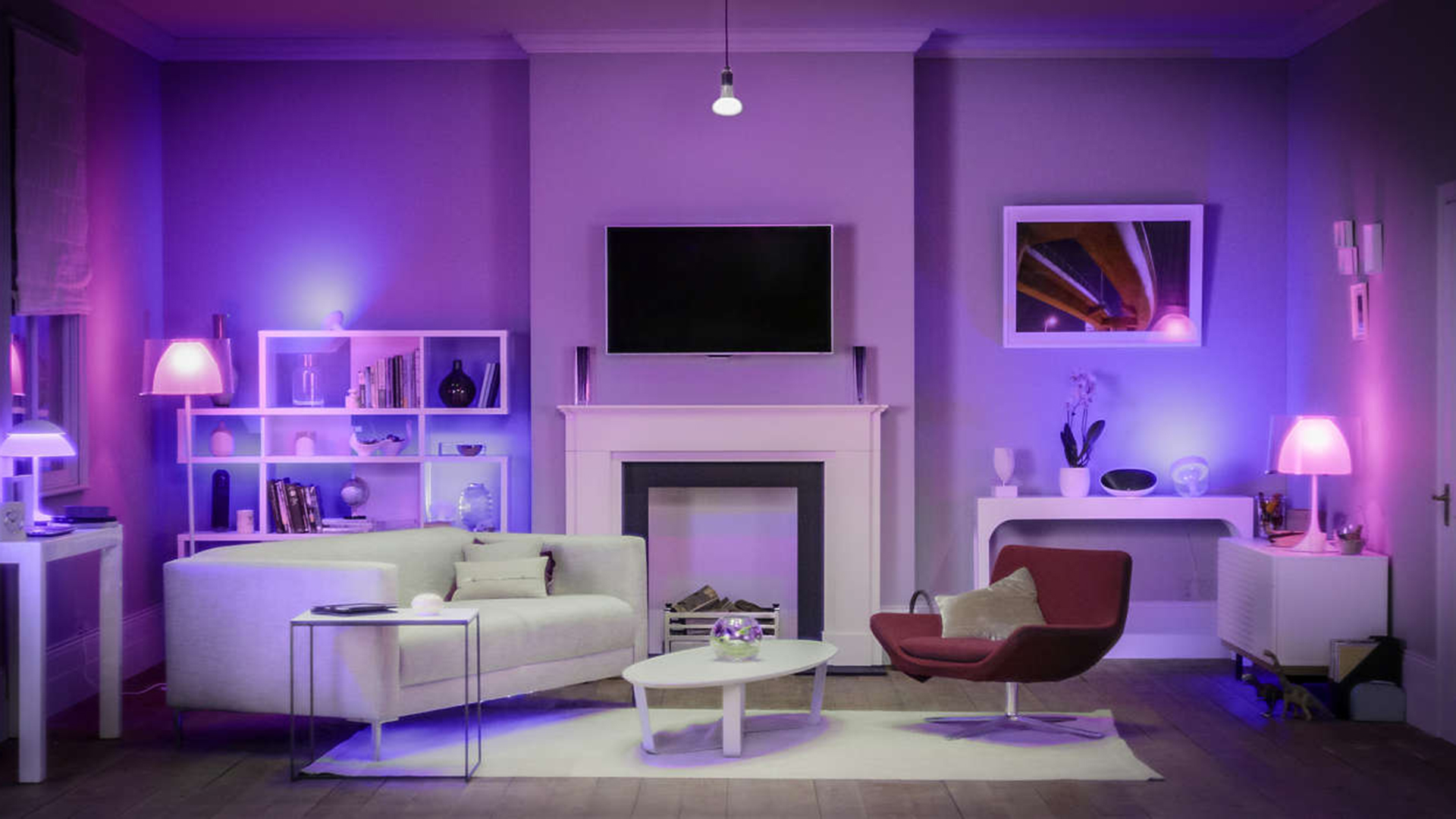
While both the Lifx and Hue bulbs offer color options, the amount of shades of color that each offers does vary. If you know how to use smart light bulbs, you'll know we are talking over 16 million colors here, so don't think either one is going to leave you wanting. But if you have a very specific color you want, or just like the option to pick from more shades, then you'll want one over the other.
The Lifx offers more shades, at 550 billion. Since shade is achieved through color and warmth, it's a combination of the Lifx offering over 16 million colors but also a range of 1,500 to 9,000K of warmth. Hue, on the other hand, tops out at 6,500K.
It might not seem like much, especially when you consider that Hue has the same color spectrum. But when it comes to variation between shades it's the Lifx that really shows the difference.
Hue vs Lifx - which is easier to setup?
For pure ease of use from opening the packet to having the smart lights up and running, the Lifx wins. The app is easy to use and with the bulbs connecting directly to your WiFi there is very little that needs to be setup.
On the other hand the Philips hue range requires you to install the bridge and then create a mesh network as all the bulbs connect to each other. It's not that difficult and you only need do the bulk of this setup on the initial install, with new bulbs being easy to add down the line.
Which is more affordable, Hue or Lifx?
Philips Hue is slightly more expensive to buy than the Lifx range. The difference isn't massive but if you're planning to do your whole home with a wide range of lighting then you may stand to make a larger saving if you go with the Lifx option.
The Hue range starts at the $20 mark and climbs right up to $200 for multipacks with bridge included. The cheapest starter kit, with two bulbs and a bridge, is $150. Browse the range here.
The Lifx range also starts at $24, but these bulbs don't require the hub bought as an extra, so it's effectively a lower price. These prices run up to $100 for indoor lights with an outdoor security specialist option at $240. Browse the range here.
Which is more energy efficient, Hue or Lifx?
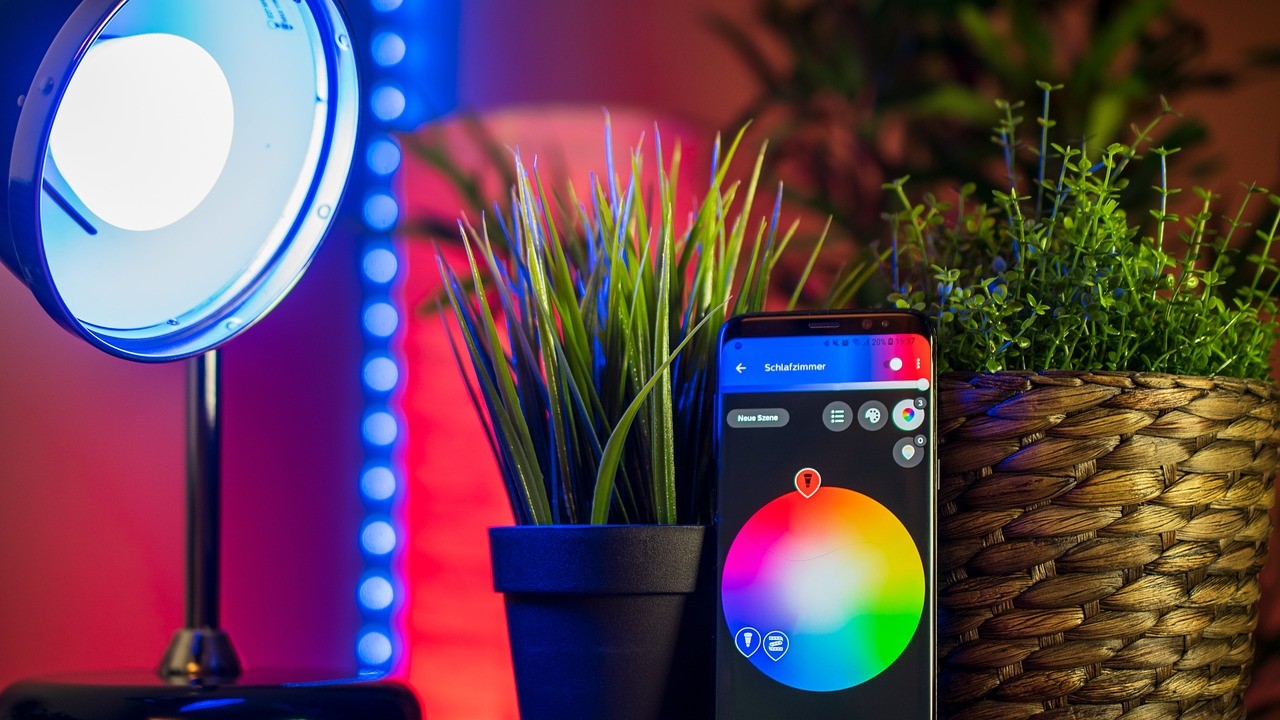
If you're planning to replace a lot of bulbs in your home with smart bulbs it's worth noting they don't all leave the same carbon footprint. As such they don't all cost the same in the longer run either. While all are LED, meaning super low power consumption, they have different levels of brightness and ways of connection to your home network.
Here is where Philips Hue stands out thanks to that bridge helping to keep energy efficiency at its best. People oftern ask 'do smart light bulbs use electricity when off?' In fact a single Hue light bulb and bridge will consume 80% less electricity than an equivalent incandescent bulb.
Lifx, while still better than many, does crank out a higher peak brightness than the Hue and so will be more costly on power consumption. But it's the WiFi chip that lets it connect directly to your internet connection that really draws the power over the Hue.
Do you want to leave your smart lights to control everything?
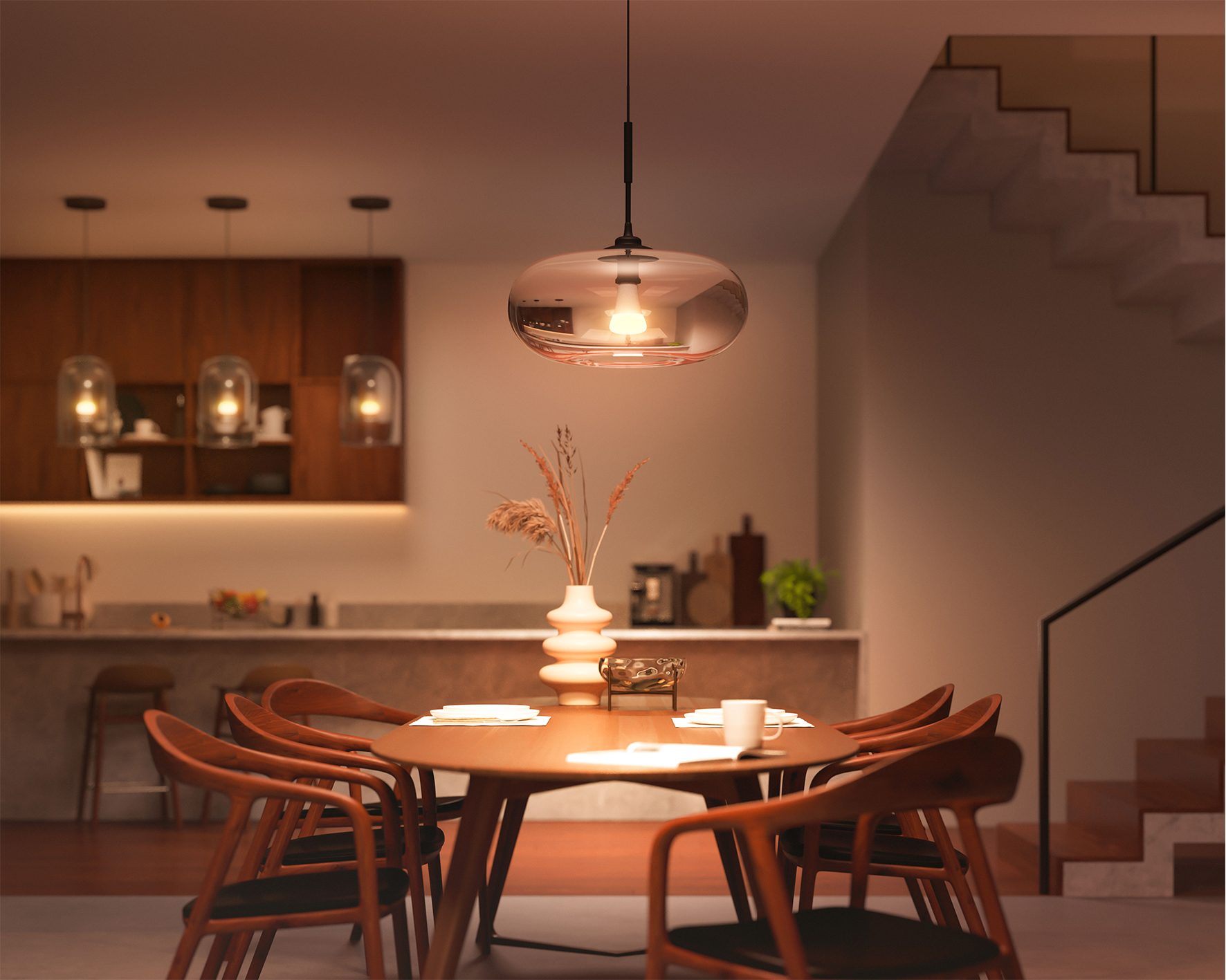
If you simply want your lights on a timer, either option will do fine. But if you want a smarter lighting setup then the Lifx could be the better choice.
Thanks to a smart system which uses the time of day to adjust the light based on Circadian rhythms, the Lifx bulbs are able to change throughout the day and night to offer the most natural lighting for your eyes. This means you'll have a brighter and more white light in the day, ideal for working around the home. But as it gets darker that light will become dimmer and warmer to create a more cosy feel, ideal for slowing down. Of course you can override this as you need but it's a nice option to have.
Which lasts longer, Hue or Lifx?
How long do smart light bulbs last? LED bulbs have a very, very long lifetime when compared to conventional incandescent bulbs. Combine with that smart connecting electronics, which are made to not go wrong, and you're looking at an investment that can be spread over years.
The average lifetime of a smart bulb is 23,000 hours, which is equivalent to about ten years based on six hours of use per day.
Philips Hue bulbs and Lifx bulbs are both rated to last an impressive 25,000 hours before they give out. That's 11 years with six hours use daily. So on this front it's a tie.
Hue vs Lifx - the verdict
So if you need WiFi range, to set up bulbs in areas of poor connection then the Philips Hue is for you. This is also the case if you want more energy efficiency and to leave the smallest carbon footprint. The app is also a bit better, but there's not much in it.
For ease of setup, affordability and the biggest range of colour and brightness options then the Lifx bulbs are the better pick. Just keep in mind you will need decent WiFi coverage in your home for the best results.

Luke is a veteran journalist and editor of over two decades where he has written about everything but specialises is technology, science, health and fitness, smart homes and health. He contributes to Real Homes, T3, Tom's Guide and TechRadar, among many other titles. As a father of two, any spare time he gets is enjoyed surfing, reading, hiking, camping and generally getting out in nature.